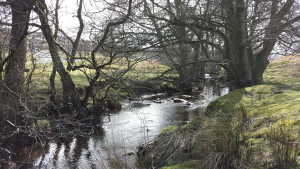
image for illustration: Peter Badcock
The Planning Advisory Service (PAS) toolkit was originally designed to be delivered within local authorities as a series of three workshops while there are accompanying resources in workshop resources outlined below.
PAS writes:
…. Local authorities may want to map… key dates such as key council meetings so that when they’re building this process they can factor these in.
Pre work for workshop delivery
- Start to collaborate and form internal partnerships with service leads.
- Circulate a questionnaire and holding one to ones with service and delivery leads to find out more about their priorities and existing environmental work, what’s working well and what’s not working well.
- Share any relevant pre reading material including sharing Briefing Note: Nature recovery – why bother?
Inception – before delivery
- Analyse responses to the questionnaire and one to ones to help structure the Implementation Toolkit and report back on these so people can see how you have used them.
- Identify examples of environmental works being delivered.
Delivering the workshops: Priorities and opportunities as a workshop
- The purpose of this session is to understand what nature and the governments nature recovery reforms mean for your council, what environmental work is already being delivered, how can this all be tied together and what else could you do to take full advantage of these new opportunities?
- Use the ‘Action’ template together with the impact/effort matrix to identify a set of short, medium and long term opportunities as well as any synergies between these to be explored in more detail as part of Barriers and solutions below.
Barriers and solutions as a workshop
- The purpose of this session is to understand what’s stopping your council from taking full advantage of the new opportunities and the types of solutions that could help address these barriers. As part of this it is important to distinguish between those barriers that are within your control and those that lie outside, for example sphere of influence.
- Use the ‘Action’ template together with the impact/effort matrix to end up with a more refined set of short, medium and long term opportunities to be explored in more detail as part of Funding and delivery below.
Funding and delivery as a workshop
- The purpose of this session is to understand how the opportunities are going to be delivered. How might you make the whole thing work financially, who else needs to be involved including potential partnerships both internally and externally? What are the risks to delivery such as changes to funding criteria or budget reductions, political priorities changing, new policy and legislation and others?
- Use the ‘Action’ template together with the impact/effort matrix to understand what the short, medium and long term opportunities look like in more detail including quick wins, projects that need developing and could be delivered in a timeframe and more aspirational future schemes.
Toolkit roadshow
PAS held three regional all day in person roadshow events in March 2024 for local authority officers to find out more about the draft Nature Recovery Toolkit, the resources and how to use them. In advance of these events we sent delegates a draft ‘train the trainer’ recording for the Workshop #1 ‘Priorities and Opportunities’ workshop together with a copy of the draft slides to review. This resource may be helpful if you are looking to deliver the toolkit as workshops.
We would suggest that this process isn’t a one-off exercise and should be periodically reviewed and refreshed based on experience, success, changing funding opportunities and more…
